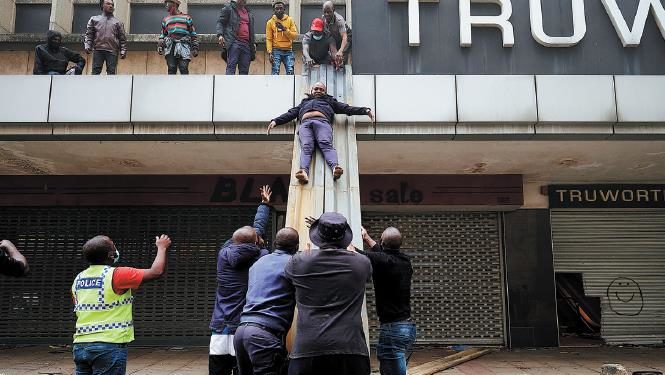The unrest first erupted last Friday after former president Jacob Zuma started serving a 15-month jail term for failing to appear at a corruption inquiry.
Shopping malls and warehouses have been ransacked or set ablaze in several cities, from Zuma’s home province of KwaZulu-Natal to the country’s biggest city Johannesburg and the surrounding Gauteng Province.
But overnight it spread to two other provinces-Mpumalanga, just east of Gauteng, and Northern Cape, said police in a statement.
“The total number of people who have lost their lives since the beginning of these protests … has risen to 72,” said police in a statement late on Tuesday. Most deaths are related to stampedes that occurred during looting incidents.
Others were linked to shootings and bank ATM explosions.
The number of arrests has risen to more than 1,200.
South Africa’s largest refinery SAPREF in Durban has been temporarily shut down due to the unrest, said an industry official on Wednesday.
Security officials said on Tuesday the government was working to halt the spread of violence and looting.
In his nationwide address on Monday night, South African President Cyril Ramaphosa lashed out at the “opportunistic acts of criminality, with groups of people instigating chaos merely as a cover for looting and theft”.
“The path of violence, of looting and anarchy, leads only to more violence and devastation,” Ramaphosa said.
The chair of the African Union Commission also condemned “the surge of violence that has resulted in the deaths of civilians and appalling scenes of the looting”, calling for “an urgent restoration of order”.
The United Nations in South Africa expressed concern that the violence was disrupting transport for workers and medical staff, and causing shortages of food, medicine and other essential products.
“This will exacerbate the current social and economic hardships caused by joblessness, poverty and inequality in the country,” it said in a statement on Tuesday night.










